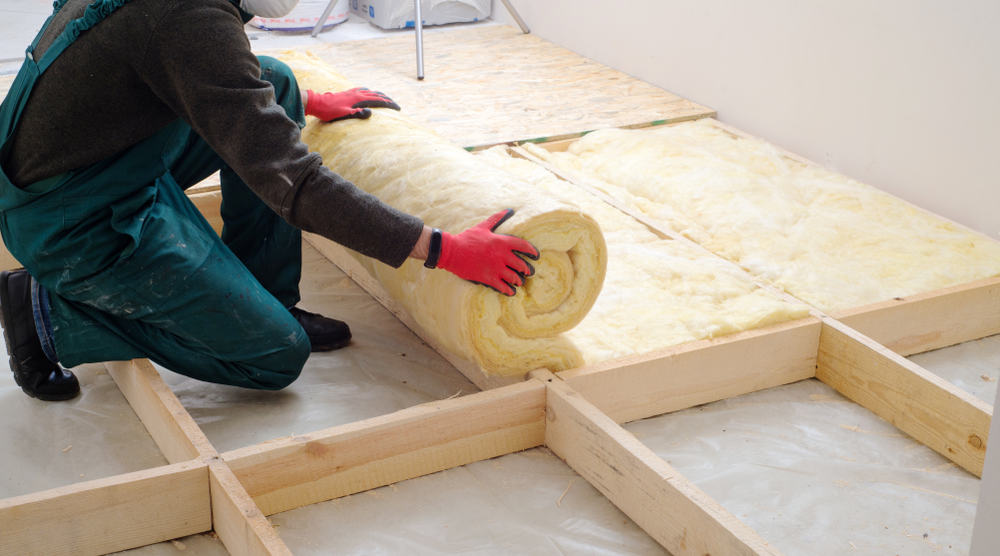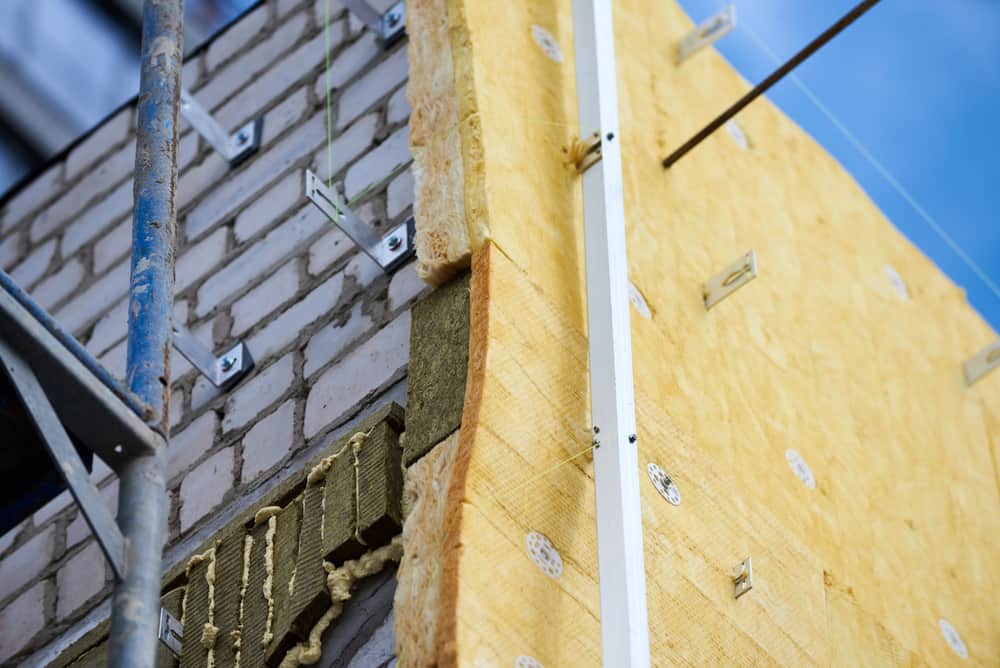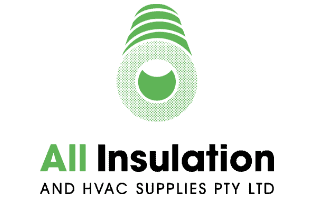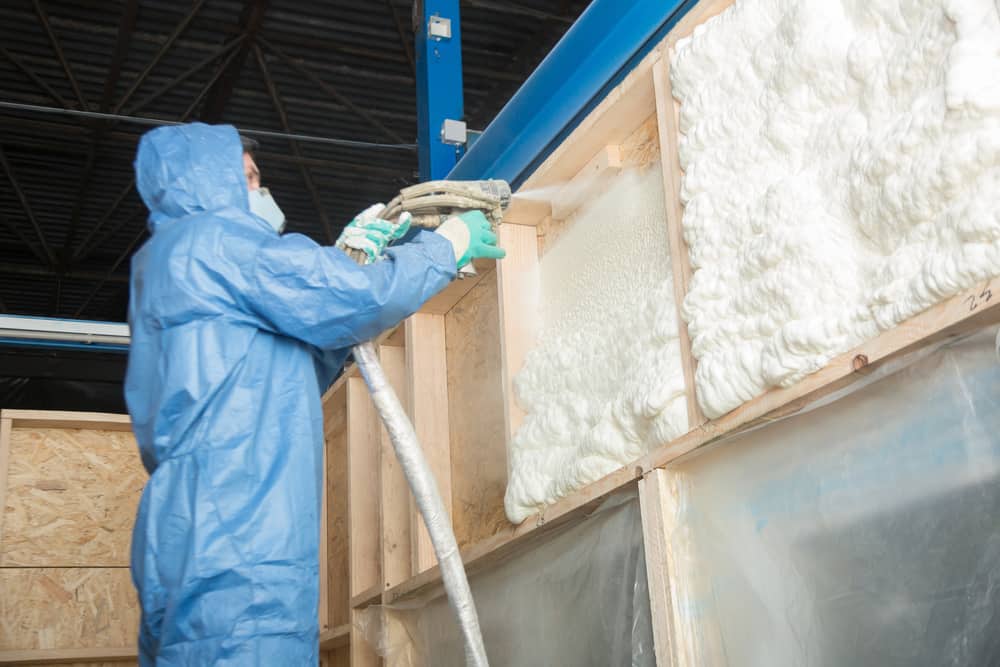Thermal insulation is widely used in a range of commercial and industrial sectors. Technology continues to evolve as do customised thermal insulation solutions. Let’s explore the reasons for this.
Thermal insulation – a brief overview
Insulation is any material that acts as a barrier. Specifically, thermal insulation material resists the transfer of heat from one place or object to another. This is different to acoustic insulation which acts to restrict the transfer of sound or vibrations.
Understanding what your insulation needs to achieve, informs product selection. It also helps to determine the most cost-effective option for the best technical results.
Applications of thermal insulation
Thermal insulation is used to insulate buildings, and plants and equipment such as HVAC systems, pipework and pressure vessels.
Although the main purpose of thermal insulation is to manage the rate of heat transfer, its properties also serve other purposes. Among them are:
- as an energy saving measure
- to prevent condensation, vaporisation or freezing of substances
- to maintain the temperature of a process
- as a safety measure to protect people from injury through direct contact with extremely hot or cold equipment
- to protect equipment and manage heat increases in the case of fire
- to absorb vibration and noise
The takeaway here is that appropriate thermal insulation is also an important risk control measure for hazards associated with the plant being insulated.
A closer look at some of the advantages
Reducing energy consumption
The primary advantage of preventing heat loss or gain with thermal insulation, is the minimisation of energy losses. Consequently, efficiencies in energy consumption are also made.
In 2020-21 Australia’s top five consumers of energy were the electricity supply, transport, manufacturing, mining and residential sectors. Therefore, it makes sense that thermal insulation has a significant role to play in reducing energy consumption across all sectors.
HVAC systems often make up the highest portion of the energy consumed in buildings. By ensuring that HVAC systems are appropriately insulated, and the building itself is also well insulated, real gains in energy efficiency and building comfort can be made.
Because thermal insulation is so important for energy efficiency, roof, floor and wall insulation requirements for buildings are specified in the National Construction Code (NCC).
With this increased focus on sustainability and reduced energy consumption across all industry sectors, thermal insulation performance is an important factor in the equation. The initial financial outlay will ultimately pay for itself through the reduction in energy costs.
Preventing condensation
Appropriate insulation helps to prevent condensation on the surface of systems where the surface temperature is below the average dew point. Dew point is the temperature at which the water vapour in the air condenses into a liquid.
Cool air duct and refrigeration systems are susceptible to condensation. By maintaining the surfaces of these systems above the dew point temperature, the formation of condensation can be controlled.
In these cases, thermal insulation is used to raise the surface temperature of pipes and ducts, and prevent heat gains. Important factors to consider are the thickness and porosity of the insulation. Porous insulation allows water vapour through and leads to the formation of condensation. This can cause corrosion of the pipe or duct work, or mould growth under the insulation.
All Insulation and HVAC Supplies understand the complexities associated with below-ambient systems and can provide cost-effective preventative heat loss solutions. Our P3 ducting and plenums and pre-insulated pipes are designed to prevent condensation issues in ventilation systems.
Noise and vibration dampening
In industry, noise can be emitted by pipework and plants. The negative impacts of excessive noise has led to legislated limits on noise emissions.
Installing insulation that provides effective thermal performance and achieves noise control is attractive both in terms of cost savings and achieving compliance.
Airborne noise can be controlled with barriers and absorbent materials. The most obvious example of this are the walls erected along roadways to act as a sound barrier for adjacent homes.
Structure-borne noise such as that from vibrating pipework, is better controlled by materials that dampen or isolate noise.
Thermal insulation such as mineral wool, is an effective noise isolator and sound absorber. Rockwool blankets in particular, provide the flexibility to absorb a wide range of noise frequencies.
Look for a product which is dense, but which meets the required R-value for your application.
Meeting compliance
The role of thermal insulation in meeting various legislative compliance requirements should not be underestimated. Let’s highlight a few areas that are common to all industries, or which can affect our everyday lives.
- Environmental protection laws – Environmental protection legislation covers matters related to emissions and environmental contaminants. This includes noise emissions.
- Occupational health and safety – Health and safety laws aim to manage the risk of injury to workers. Thermal insulation is an important engineering solution and risk reduction measure. The installation of this insulation layer reduces the risk of burns and helps to control hazardous industrial noise.
- Building codes and legislation – The provisions of the NCC discussed previously, are called up by building-related legislation in every Australian state and territory.
- Food production and storage – Maintaining appropriate temperatures is a critical factor in food safety and for public health. The Food Standards Australia New Zealand (FSANZ) sets out food safety standards for food business and primary production. Included are matters relating to temperature control and equipment.
Product selection - understanding the science
Selecting a thermal insulation product that best suits your project, requires an understanding of how heat is transferred. Let’s look at the basics.

About heat transfer
There are three ways in which heat is transferred in the environment and in equipment. They are:
- Convection – This is where heat is transferred when a heated liquid or gas moves around and carries its heat with it. The rate of heat flow depends on the temperature of the moving substance and its flow rate.
- Conduction – This is where heat passes through material, or from one material to another. Conduction of heat is reliant on physical contact and a difference in temperature between the molecules in the materials. The rate of heat flow depends on the temperature difference and the thermal conductivity of the materials.
- Radiation – This is the transmission of radiant energy such as infra-red radiation. The energy passes through air or a vacuum, from a heat source to a cooler surface and heats it up. The heating occurs when the cooler surface absorbs the heat.
How thermal insulation reduces heat transfer
Thermal conductivity and thermal resistance are terms that are synonymous with thermal insulating materials.
The measure of thermal resistance to heat flow is known as the R-value. The higher the R-value of an insulation product, the greater the thermal resistance.
The measure of thermal conductivity is often identified as the k-value. This denotes the ability of a material to conduct heat. This is influenced by the thickness of the material, time factors, the temperature gradient and the amount of surface area involved. A material with low thermal conductivity typically has good insulating capabilities.
Types of insulation materials
There are many types of materials that are used in insulation. Here is a broad look at just some of them.
Inorganic insulation materials
Rock wool and glass wool (fibreglass) are two types of inorganic thermal insulating materials. A broad summary of their properties and uses is highlighted below.
- Can be used as a loose fill material
- Can have a variety of mechanical properties
- Low thermal conductivity
- High thermal resistance
- High fire resistance
- Suitable in high temperatures
- Environmentally safe
They are suitable for:
- Structural insulation
- Pipe insulation
- Filtration
- Soundproofing
Typical products include:
Organic insulation materials
Materials such as polystyrene, polyurethane and phenolic foams are organic insulation materials. Typically, the foam-like structure of these products means that they trap gas or air. This property helps to prevent convection.

Phenolic insulation such as that used in All Insulation and HVAC Supplies’ P3 ducting and plenums, is thermally efficient and non-combustible. Its non-absorbent properties make it exceptional for below-ambient systems. It also suits situations where high insulation standards are required, and space is at a premium.
Foil
Aluminium foil is most often used as reflective insulation to resist radiant heat. Typically foil insulation products are laminated onto another material such as rockwool or polystyrene.
Chloride induced stress corrosion cracking (CISCC) in 300 series stainless steel occurs in saline environments, at high temperatures and where stress is present. Foil is effective at preventing CISCC from occurring.
All Insulation and HVAC Supplies’ Rockwool Pipe Sections contain foil to help minimise heat loss.
The All Insulation and HVAC Supplies commitment to you
The team at All Insulation and HVAC Supplies can provide advice on your thermal insulation needs.
All Insulation and HVAC Supplies has 20 years of experience in the insulation and HVAC industries. We have positioned ourselves as a trusted and reputable manufacturer and supplier of high-quality insulation products.
Because we understand industry needs, All Insulation and HVAC Supplies promises shorter lead times on the supply of products, allowing you to position yourself as a reliable insulation installer.
Our technology and state-of-the-art equipment enable us to meet your specifications and create custom solutions for your project.
Our mission is to keep Australian industries operating efficiently, safely and profitably through high-quality insulation supplies. We prioritise communication, relationship building, and innovation, and keep these values at the forefront of everything we do.
All Insulation and HVAC Supplies is committed to providing you with high-quality thermal insulation products at competitive prices and in reliable time-frames.


